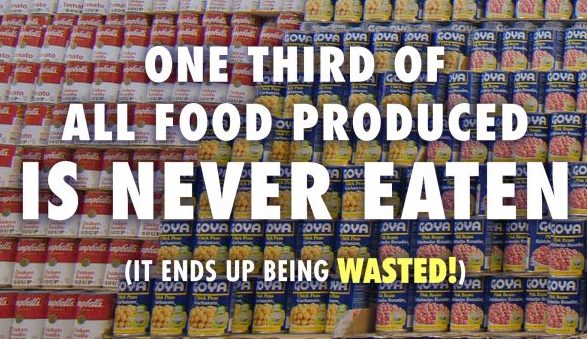Ontario Takes Steps to Ensure Surplus Food Does Not Go to Waste

WASTED! The Story of Food Waste: Documentary aims to change the way people buy, cook, recycle, and eat food. (Link chosen to illustrate, this doc is not producd by the province.)
Ontario government news release
The Ontario government is investing over $5 million to help food rescue organizations, First Nation communities and Indigenous organizations purchase refrigerated trucks, freezers, storage space and kitchen equipment so they can safely collect, preserve and distribute unused, high-quality surplus food from places like grocery stores and restaurants to those in need during COVID-19 and beyond, ensuring fresh food does not go to waste.
Jeff Yurek, Minister of the Environment, Conservation and Parks announced details of the new Surplus Food Redistribution Infrastructure Program during a Waste Reduction Week event at Youth Opportunities Unlimited in London. The Minister was joined by Doug Whitelaw, Founding Partner, London Food Coalition and Steve Cordes, CEO, Youth Opportunities Unlimited (YOU).
“We know COVID-19 has greatly affected restaurants and the food industry as we’ve returned to a modified Stage 2 which prohibits indoor dining in some parts of the province. These closures have contributed to a surplus of valuable food that can support individuals and families who are feeling the impact of the pandemic,” said Minister Yurek. “Providing this investment in refrigerated infrastructure will help food rescue organizations support Ontarians in need today and well into the future.”
“London Food Coalition acknowledges the very gracious and timely financial support from the Ontario government,” said Doug Whitelaw. “This funding will significantly assist the Coalition to rescue, recover and redistribute food to its member agencies and the people of London and Middlesex by increasing our food collection and storage capacities. In 2020, London Food Coalition will reduce the amount of nutritious food going to landfills by 125,000 kg, preventing approximately 237,000 kg of CO2/methane from being released into the atmosphere.”
The London Food Coalition is among nearly 30 community-based organizations, Indigenous organizations and First Nation communities that are receiving funding as part of the Surplus Food Redistribution Infrastructure Program.
“YOU’s partnership with London Food Coalition allows us to regularly provide marginalized youth with fresh and nutritious food,” said Steve Cordes. “When so many young people are struggling to meet their daily needs, this service is even more vital. We thank the organizers, grocers and the government of Ontario for supporting this important work.”
“One of our government’s main priorities throughout this pandemic is ensuring the people of Ontario continue to have access to the safe, healthy food our province is known for,” said Ernie Hardeman, Minister of Agriculture, Food and Rural Affairs. “This important investment will not only contribute to reducing food waste but will help provide food to those who need it most.”
In 2018, Ontario generated about 3.6 million tonnes of food and organic waste, and approximately 60 per cent was sent for disposal, mostly to landfill. Reducing food waste is a key commitment of the government’s Made-in-Ontario Environment Plan, and represents a significant step in working towards growth, renewal and economic recovery from the impacts of COVID-19 as part of Ontario’s Action Plan: Responding to COVID-19.









Leave a Reply